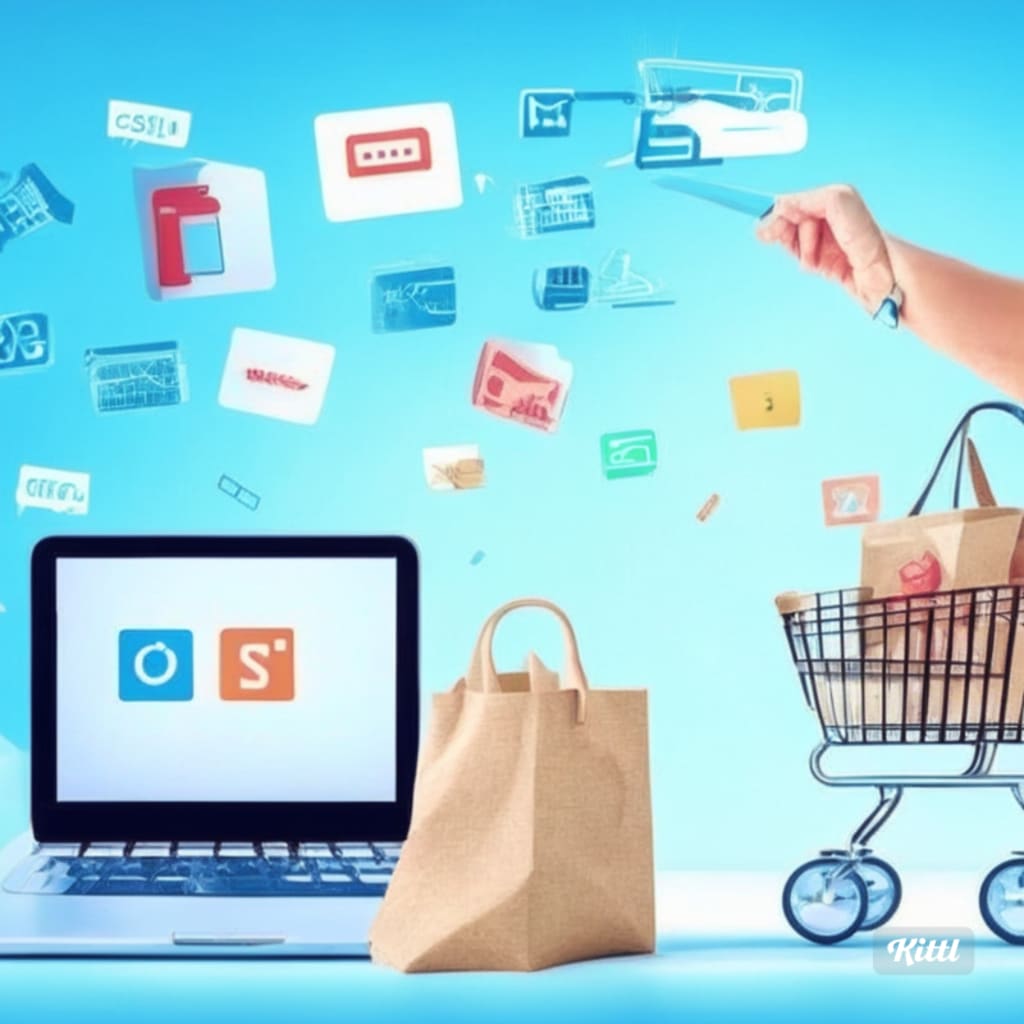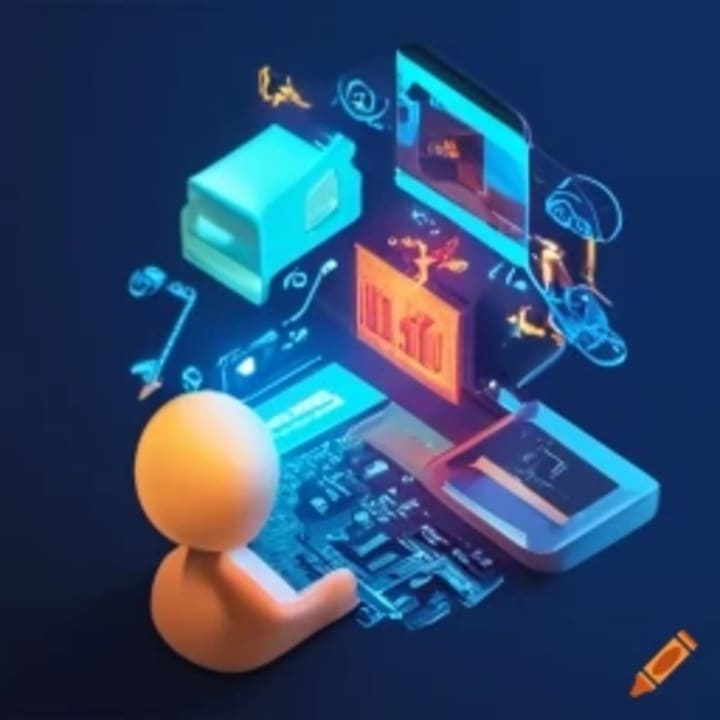Embracing the E-Commerce Revolution: Why Marketing Automation Holds the Key to the Future
Unleashing the Power of Automation: E-Commerce's Path to Personalization and Prosperity

Introduction
In the past few decades, e-commerce has transformed the way we buy and sell goods and services. The advent of the internet and technological advancements has enabled businesses to connect with customers globally, breaking down geographical barriers and revolutionizing traditional marketing methods. As e-commerce continues to grow exponentially, marketing automation has emerged as a vital tool for businesses to stay competitive and thrive in this ever-evolving digital landscape. This article explores the significance of e-commerce in shaping the future of business and why marketing automation plays a crucial role in its success.
Don't Miss Out on the Best Email Automation Tools - Sign Up Today!

I. The E-Commerce Revolution
E-commerce, the process of buying and selling products and services online, has disrupted traditional business models and revolutionized the global marketplace. The growth of e-commerce can be attributed to several factors:
Convenience: Online shopping offers unparalleled convenience to consumers. They can browse and purchase products from the comfort of their homes, at any time, without the need to visit physical stores.

Global Reach: E-commerce eliminates geographical limitations, enabling businesses to reach customers across borders and time zones. This opens up vast opportunities for expansion and growth.
Cost Efficiency: E-commerce significantly reduces the costs associated with running physical stores, such as rent, utilities, and staff salaries. This cost-saving benefit allows businesses to offer competitive prices to consumers.
Don't Miss Out on the Best Email Automation Tools - Sign Up Today!

Personalization: E-commerce platforms can collect data on customer behavior and preferences, enabling businesses to personalize their offerings and marketing messages, resulting in higher customer satisfaction and loyalty.
II. The Rise of Marketing Automation
As e-commerce gains prominence, businesses face the challenge of efficiently managing and nurturing their online presence and customer interactions. This is where marketing automation comes into play. Marketing automation refers to the use of software and technology to automate repetitive marketing tasks and streamline customer engagement processes. It has become a fundamental component of successful e-commerce strategies for several reasons:
Enhanced Customer Experience: In the digital realm, customer experience is paramount. Marketing automation allows businesses to deliver personalized, relevant content and offers based on customer behavior and preferences, leading to a more engaging and satisfactory shopping experience.

Lead Generation and Nurturing: Marketing automation tools enable businesses to capture and nurture leads automatically. By segmenting leads based on their interests and activities, targeted and timely communications can be sent, guiding potential customers through the sales funnel.
Time and Cost Efficiency: Automating marketing tasks reduces manual labor and saves time, allowing marketing teams to focus on more strategic initiatives. This efficiency also translates into cost savings, making it a valuable investment for businesses of all sizes.
Don't Miss Out on the Best Email Automation Tools - Sign Up Today!

Data-Driven Decision Making: Marketing automation platforms provide valuable insights and analytics on customer behavior, campaign performance, and overall marketing effectiveness. Armed with this data, businesses can make informed decisions and optimize their strategies for better results.
III. Key Components of Marketing Automation in E-Commerce
To fully understand the importance of marketing automation in the e-commerce landscape, it is essential to delve into its key components:
Email Marketing Automation: Email remains a powerful marketing tool, and automation enhances its potential. Businesses can set up email sequences triggered by specific actions, such as abandoned carts or completed purchases, to nurture customer relationships and encourage repeat business.

Personalization and Segmentation: Marketing automation allows businesses to segment their audience based on various criteria, such as demographics, purchase history, or browsing behavior. This segmentation enables personalized content delivery, significantly increasing the chances of conversion.
Social Media Management: Social media is a vital aspect of e-commerce marketing. Automation tools can schedule posts, monitor engagement, and respond to customer inquiries efficiently, helping businesses maintain an active and consistent social media presence.
Don't Miss Out on the Best Email Automation Tools - Sign Up Today!

Customer Support Automation: AI-powered chatbots and automated customer support systems enable businesses to provide instant responses to customer queries, even outside regular business hours, improving customer satisfaction and loyalty.
Dynamic Content: Marketing automation tools enable the creation of dynamic content that adapts based on customer interactions. This dynamic content can be tailored to lead nurturing, re-engagement, and upselling efforts.

IV. Marketing Automation and the Future of E-Commerce
The symbiotic relationship between marketing automation and e-commerce is poised to shape the future of business in several ways:
Hyper-Personalization: As technology advances, marketing automation will continue to refine personalization efforts. Consumers will experience more customized shopping journeys, with tailored product recommendations and offers based on real-time behavior.
Don't Miss Out on the Best Email Automation Tools - Sign Up Today!

AI-Driven Automation: Artificial intelligence will play an increasingly significant role in marketing automation, further streamlining processes and providing valuable insights through predictive analytics.
Seamless Multi-Channel Experience: Marketing automation will facilitate a seamless experience across multiple channels, ensuring consistent messaging and user experience across websites, social media, emails, and more.

Enhanced Customer Retention: By leveraging marketing automation to nurture customer relationships, businesses will experience higher customer retention rates and foster brand loyalty.
Don't Miss Out on the Best Email Automation Tools - Sign Up Today!
Growth of Small Businesses: Marketing automation levels the playing field for small businesses by enabling them to compete effectively with larger enterprises. Automation tools offer cost-effective solutions that allow smaller players to scale their operations efficiently.
Conclusion
The future of e-commerce undoubtedly lies in the realm of marketing automation. As businesses embrace the potential of automation technology, they position themselves for success in a rapidly evolving digital landscape. By leveraging marketing automation, businesses can elevate customer experiences, streamline operations, and build stronger, long-lasting relationships with their audience. Those who recognize the significance of marketing automation and adapt accordingly will undoubtedly be at the forefront of the e-commerce revolution, reaping the benefits of sustained growth and success in the years to come.





Comments
There are no comments for this story
Be the first to respond and start the conversation.